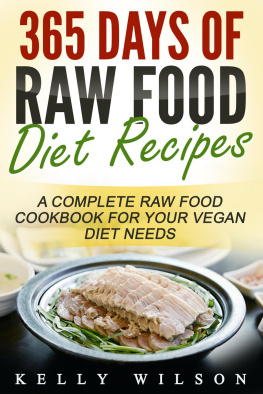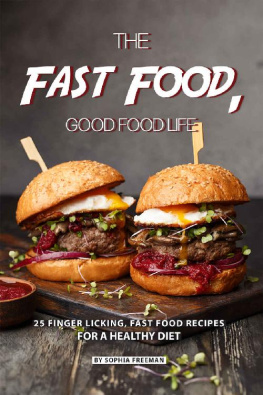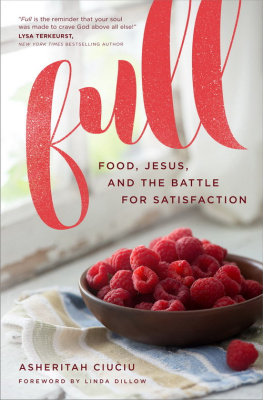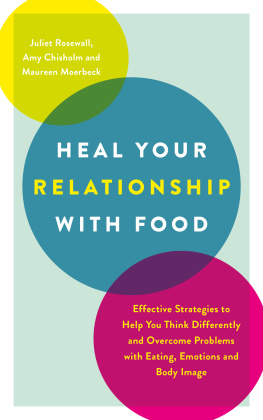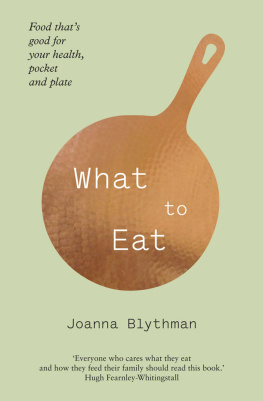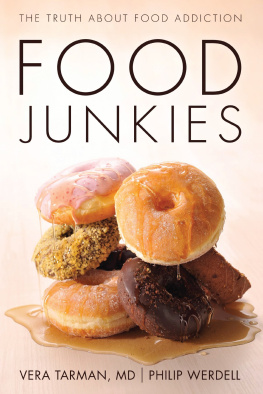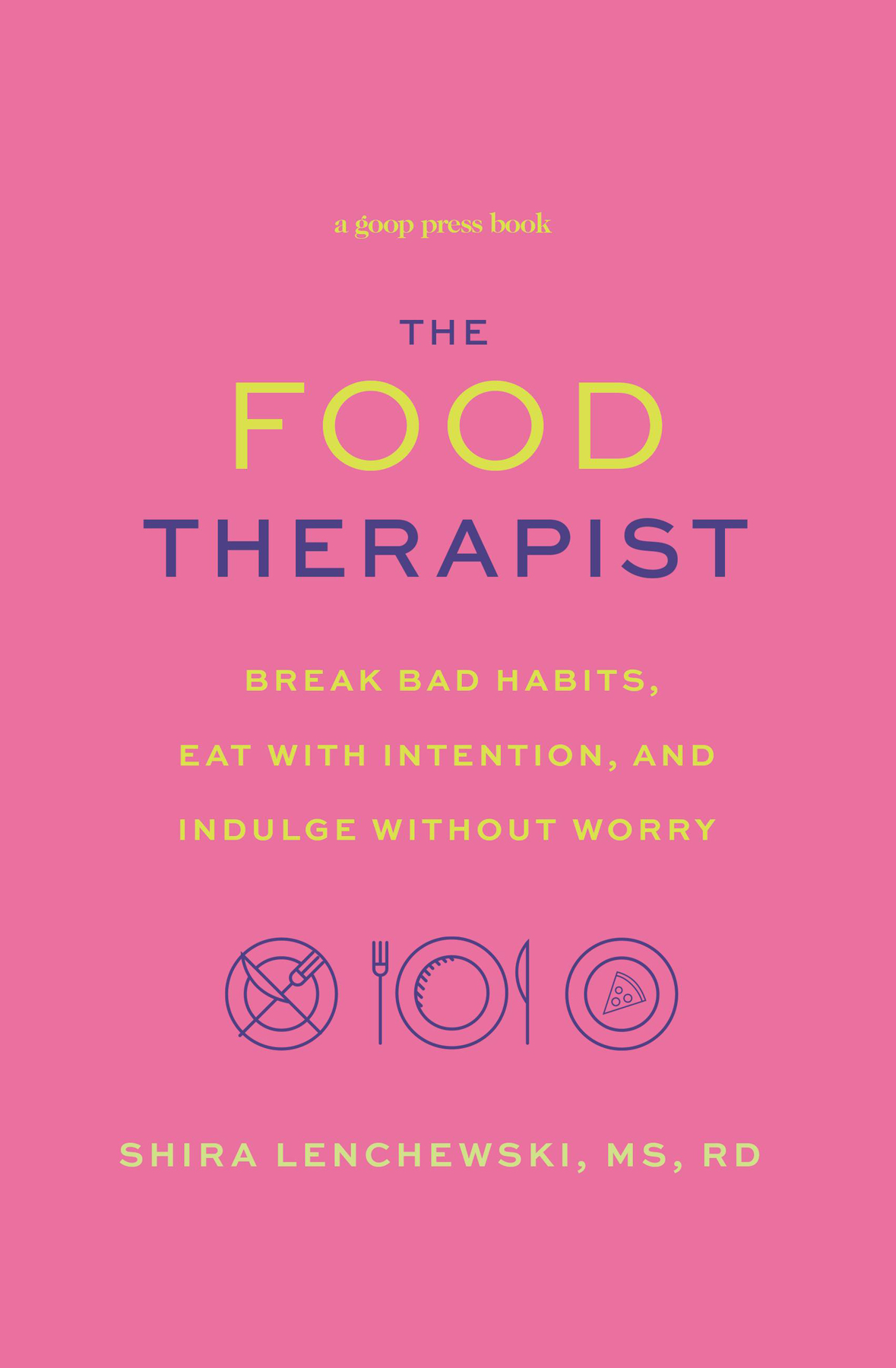Thank you for buying this ebook, published by Hachette Digital.
To receive special offers, bonus content, and news about our latest ebooks and apps, sign up for our newsletters.
Copyright 2018 by Shira Lenchewski
Cover design by Claire Brown
Cover copyright 2018 by Hachette Book Group, Inc.
Hachette Book Group supports the right to free expression and the value of copyright. The purpose of copyright is to encourage writers and artists to produce the creative works that enrich our culture.
The scanning, uploading, and distribution of this book without permission is a theft of the authors intellectual property. If you would like permission to use material from the book (other than for review purposes), please contact permissions@hbgusa.com. Thank you for your support of the authors rights.
Grand Central Life & Style
Hachette Book Group
1290 Avenue of the Americas, New York, NY 10104
grandcentrallifeandstyle.com
twitter.com/grandcentralpub
First ebook edition: February 2018
, the future self continuity scale Hal E. Hershfield.
Grand Central Life & Style is an imprint of Grand Central Publishing. The Grand Central Life & Style name and logo are trademarks of Hachette Book Group, Inc.
The publisher is not responsible for websites (or their content) that are not owned by the publisher.
The Hachette Speakers Bureau provides a wide range of authors for speaking events. To find out more, go to www.hachettespeakersbureau.com or call (866) 376-6591.
ISBN 978-1-478-91812-7
E3-20180111-JV-PC
For Andrew, of course
The information herein is not intended to replace the services of trained health professionals or be a substitute for medical advice. You are advised to consult with your health-care professional with regard to matters relating to your health, and in particular regarding matters that may require diagnosis or medical attention.
If you asked people to post a status update on their relationship with food, Im guessing most would toggle to Its complicated. Much like thorny love connections, our relationship with food is one of lifes most emotionally loaded, yet still instantly gratifying, bonds. When things are good, theyre oh so goodtheres passion and excitement, comfort and confidencethe stuff you wouldnt trade for anything. On the other hand, when your interactions feel stagnant or strained, everything seems like a struggle. You may go through periods of second-guessing your every move or maybe even giving up effort entirely. Yet, while any genuine romantic relationship is bound to be somewhat complicated, given that there are built-in issues of trust and fairness along with a second helping of lifes problems (since there are two of you), the same doesnt have to be true of your relationship with food.
The interesting thing, though, is that many of us analyze our romantic relationships at length (andahemsometimes to death) but dont really spend much time digging deep when it comes to our ongoing relationship with food. But heres the simple truth: You cant make better, more consciously driven food decisions that are in line with what you really want for yourself and ultimately reach your health and bod goals if you dont examine the roots of this vital relationship. And yet, in my experience, most people havent even skimmed the surface of their personal backstory with food (aside from throwing endless shade at themselves).
When people used to ask me about my interest in nutrition, Id often tell them about growing up as an athlete (rowing) and my focus on food in terms of fueling my body. While both those things are valid, I realized later that I was leaving out what was in many ways much more important and relevant: the full picture. I was an uber-anxious, self-conscious kid who grew up in the 90s, when the fat-free craze and other gag-worthy diets were alive and well. I grew up hearing about weight a lotfamily members saying things like, Ugh, Im so fat, Look how skinny she is, etc. I was actually a healthy-looking kid, but I didnt feel good in my own skin. I didnt love my bod, but I did love food, and I thought that you kind of had to pick a laneyou could either feel good about your bod but relinquish the joys of eating delicious food, or you could enjoy food but in turn sacrifice having the body you wanted. I genuinely thought it was an either/or thing. Without all the facts, the self-awareness, or the self-compassion, I became the queen of Diet Coke and sad salads with dressing on the side. As I eventually discovered, not only is this a really gloomy way to live, but restricting yourself this way doesnt actually work. It keeps you forever hungry and constantly thinking about food, and quite frankly, I had more important sh*t to do.
Ditching this narrow mindset was a complete and utter game changer, but I couldnt have switched gears without forgiving myself for doing it wrong all those years, for doing the eating equivalent of biking uphill with my brakes on (something Ive unfortunately done, by the way). The moral of the story for me was that you dont have to choose between looking and feeling your best and eating delicious, flavorful, satisfying food. In fact, I honestly think youve got to have both factors at play to make consciously healthy food choices on the regular. Its the same reason youll never find me fasting on Yom Kippur (Jewish New Year), doing a liquid cleanse, or engaging in anything ultrarestrictive when it comes to food because, honestly, Ive been there and done that, and not only did it feel like crap but it also didnt bring the results I craved. So rest assured: The reason I can speak so definitively about food-related missteps is that Ive known them intimately, both personally and professionally.
Some details on the professional part: Im a registered dietitian in private practice in Los Angeles, and Im more or less a food therapist. Truth be told, the gig wasnt exactly what I was expecting, coming out of my clinical-nutrition graduate program, but Ive fully embraced the role. In grad school at NYU, I pored over biochem and organic chemistry with serious gusto. (Not joking; I freaking love science.) But after finishing my dietetic residency at Mount Sinai Hospital in New York City, I realized just how much the science stuff takes a backseat to the emotional aspects in everyday life. In my practice, I work with different types of women and girls (and some dope dudes, too), from editors, law-firm partners, MBA students, middle-schoolers, high-schoolers, and Hollywood folk to working moms and full-time momsa varied and unique bunch, to say the least. Early on, I noticed a recurring theme thats still ongoing today: Most of my clients can immediately rattle off all the things they ought to be doing: limiting added sugar, exercising portion control, making better choices at restaurants, etc. The problem is that theyre not actually doing those things on a regular basis. In other words, theres a gap between their intentions to get healthier or lose weight and their day-to-day eating behaviors. So before my clients and I get to the actual meal planning, the crux of our initial work plays out more like a food therapy session, getting to the bottom of why they arent doing those things.
But how is it that so many of us are motivated to look and feel better and understand the basics needed to get there, and yet were not following through? Hint: Its not because were the worst (although, ironically, thats often where our heads go). Its largely because the vast majority of us have a conflict-ridden relationship with food. When you add up the emotional baggage that comes with that troubled-relationship territory, the constant distractions we all deal with on the daily, and the physiological issues involved, its not actually all that shocking that were not delivering on our get-healthy goals. The reality is, its really difficult to translate our good intentions into effective actions in the face of all this noise, because were constantly working against ourselves.


